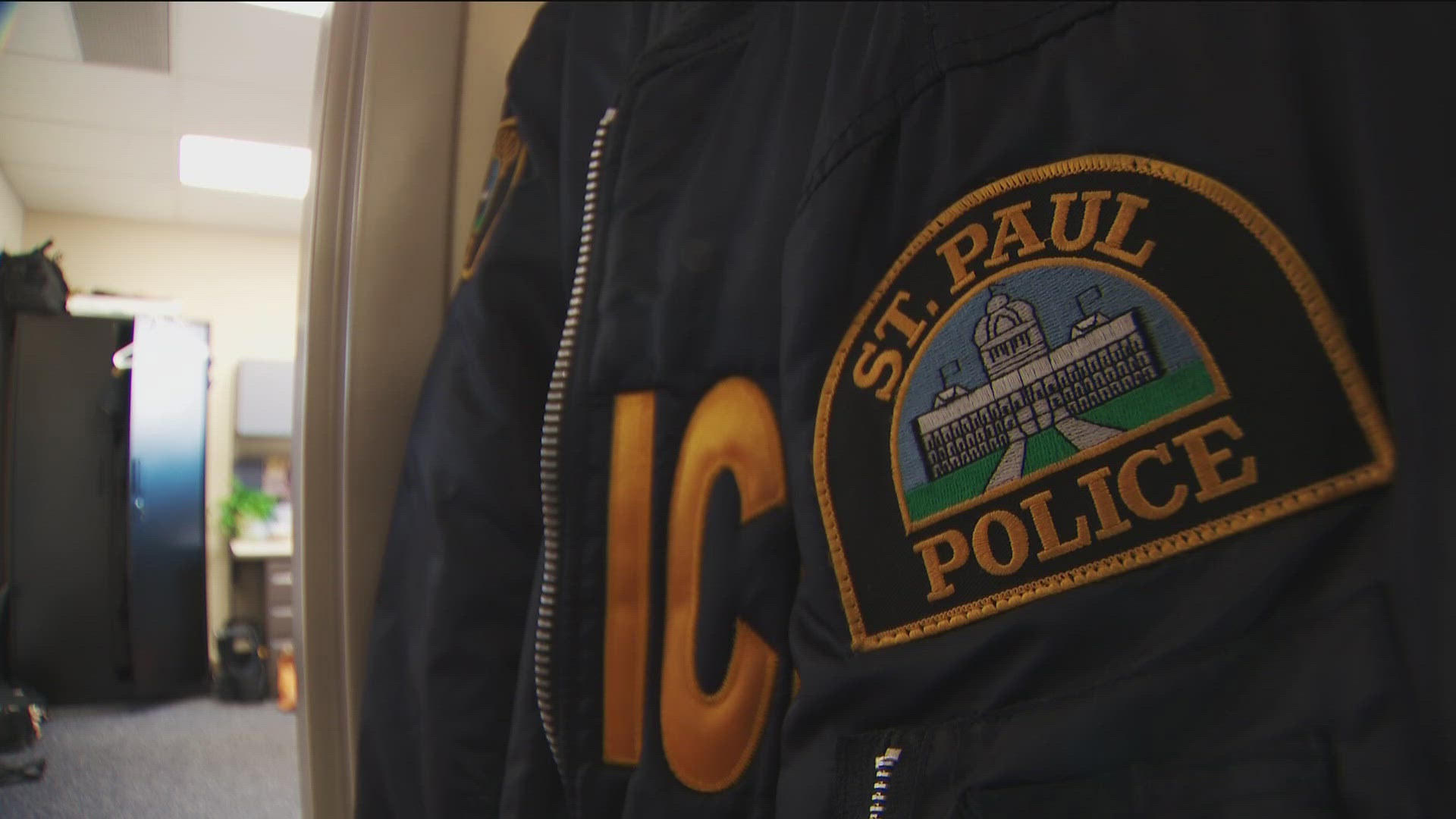ST PAUL, Minn. — The City of St. Paul has seen a number of deadly shootings recently, but often it's the ones that aren't fatal that don't get as much attention. And for police, they can also be harder to solve.
The department, though, is trying something new to try and reverse that trend.
"The amount of guns that are on the street right now," St. Paul Police Commander Nikkole Peterson said about the biggest change she's seen in the 22 years she's been a cop. "It's jaw-dropping."
Commander Peterson is now in charge of the department's non-fatal shooting unit that launched in January focusing only on those crimes.
It's the only department in the state implementing something like that, after it saw success with the police department in Denver, Colorado doing something similar.
"If there's a shooting, it doesn't matter what time of night that happens or time of day, that sergeant will get called in to begin the investigation immediately," said Commander Peterson.
The crime used to fall on the homicide unit that's already burdened by heavy case loads. There's also usually little victim cooperation which can stall solving non-fatal shootings.
"A lot of times we wouldn't investigate it any further or the prosecutor wouldn't charge those crimes and we knew that something different had to be done," said Commander Peterson.
The unit is now treating non-fatal shootings like homicides and making them a priority. The investigators also rely more heavily on evidence and devote just as many resources, from forensics to video management and even SWAT teams.
"We are utilizing all these different resources to help solve these crimes," said Commander Peterson. "We're chasing down every lead that we can."
In a press conference on Tuesday, St. Paul Police Chief Axel Henry said there have been 86 non-fatal shootings compared to 99 this same time last year. But two years ago, there were 170, putting the city's solve rate around 60%.
"Anything above 50% is just incredible and so we're really happy with where we're at right now," said Commander Peterson.
Commander Peterson also credits the city's ASPIRE program that focuses on intervention, particularly with youth. She also points to the Office of Neighborhood Safety that partners with local organizations working on prevention, saying this cooperation is ultimately what will reduce crime.

